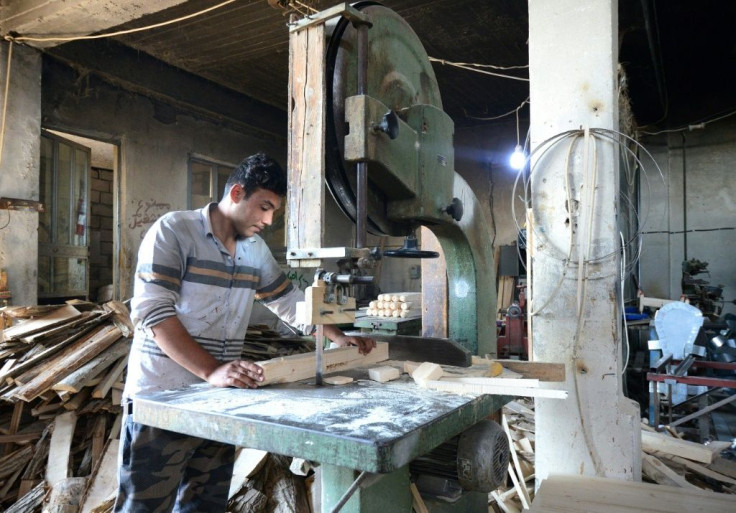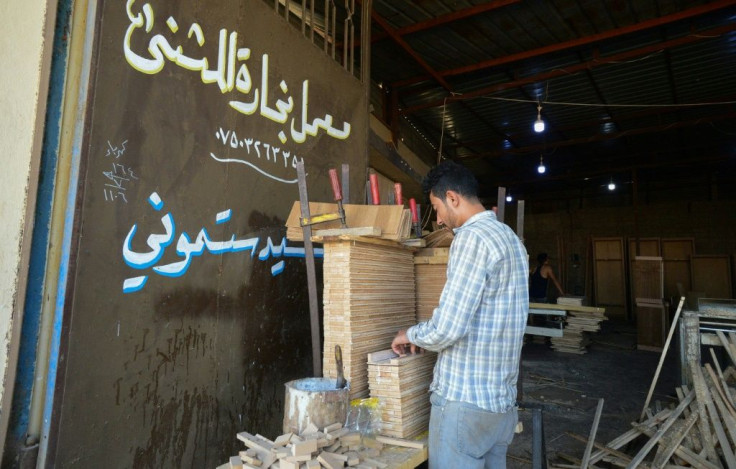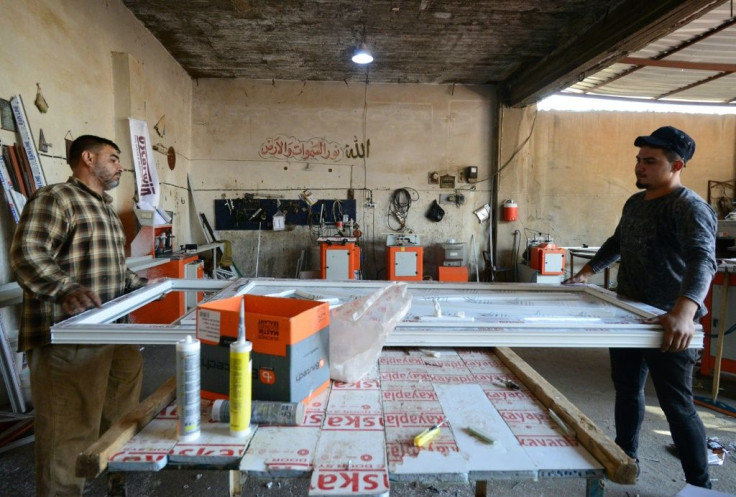Iraq's Mosul Strains To Revive Manufacturing Past

Its wool could once be found in French marketplaces and its cement as far away as Singapore. But after years of fighting, Iraq's Mosul has yet to regain its former industrial glory.
The city's factories were pulverised by Islamic State group jihadists and its export routes remain choked by informal customs points, while cheap imports flood the market.
Those challenges have hamstrung the northern city's recovery from three years of brutal jihadist rule that ended in mid-2017, its business owners say.
"Under IS's strict measures, the factories closed, the economy regressed and Mosul was cut off from the rest of the world," said 33-year-old Issam Abdallah.
Abdallah owns a dairy factory in the city's west, most of which was bombed into ruin in the final phase of fighting to oust the jihadists.
"Sixty percent of my factory was destroyed, but I borrowed from relatives and reopened it a few months after Mosul was recaptured," he told AFP.
His modest factory churns out white cheeses packed into medium-sized pots that are sold on store shelves in Mosul for 2,000 Iraqi dinars, or a little over $1.50.
But there's new competition in town, and the same money can buy a much larger vat of cheese imported from Iraq's northern neighbour Turkey.

A storied past
Unproductive and isolated, the state of Mosul today is a far cry from during the city's industrial golden days.
It was a crucial overland trading post along the Silk Road to China beginning under Ummayyad rule in the 8th century.
Wheat from surrounding fields was processed and stored in Mosul, and the region became known as Iraq's "breadbasket".
Wools and tanned hides sourced from surrounding ranches were exported to Europe and contributed to the city's expanding growth in the 1800s.

By the 20th century, oil was discovered, the government invested in manufacturing, and Mosul produced more than one million tonnes of cement -- some of which reached halfway around the world to the Far East.
In 2013, the city boasted 350 food stuff plants, dozens of tanneries and furniture factories, and other facilities for juicing, processing metal and more.
The following year, IS overran the city, transforming the trade hub into the Iraqi seat of its self-styled "caliphate."
Factories were shut, with 70-80% of their equipment sold or repurposed to make weapons, according to the World Bank.

Skilled workers fled and demand plummeted as residents only spent what they absolutely had to.
Now, factory owners are trickling back -- but finding a near-unrecognisable market.
No reliable electricity and water, high rents and no distribution channels are the top complaints, according to a poll by the International Organisation for Migration.
"Before 2014, we exported our products to the rest of Iraq safely and easily," recalled Hashem al-Najjar, 22.
His family's business in east Mosul made bright plastic pipes, buckets and other inexpensive household products shipped out in bulk along the network of highways linking Iraqi cities.
Transport troubles
Mosul was spared from the anti-government protests earlier this month which rocked Baghdad leaving more than 100 dead.
But even though Najjar's factory reopened a few months ago, obstacles abound.
"Electricity is unreliable and there are a lot of difficulties in transporting the products outside the city," he told AFP.
Indeed, roads leading from Mosul into the autonomous Kurdish region or south to Baghdad are dotted with checkpoints collecting informal customs fees.
According to a Chatham House report this year, these fees are "critical for armed groups" which are desperate to remain relevant now that fighting has slowed down.
Iraq's government has repeatedly ordered the checkpoints removed, with little effect: one paramilitary group made up of minority Shabak fighters recently blocked access through one of these valves for days in a show of force.
Factory owners also say they cannot rival cheaper imports from Iran, Turkey and Saudi Arabia -- which tend to be more appealing to residents with limited purchasing power.
Mosul resident Nazir Abdallah says his restaurant job doesn't pay him well enough to purchase local.
"I buy imported products, especially Chinese, because they're cheaper, even if they're not as good," says the 26-year-old.
To make revival a reality, economist Khaled Hamed has a laundry list of recommendations: "Government help, renovation of the water, power, communication and transport infrastructure, a full banking system and investment opportunities."
But fierce competition has already begun over next year's budget allocations, making it unclear whether Mosul's ambitions for a commercial comeback will remain just a pipe dream.
© Copyright AFP 2024. All rights reserved.





















